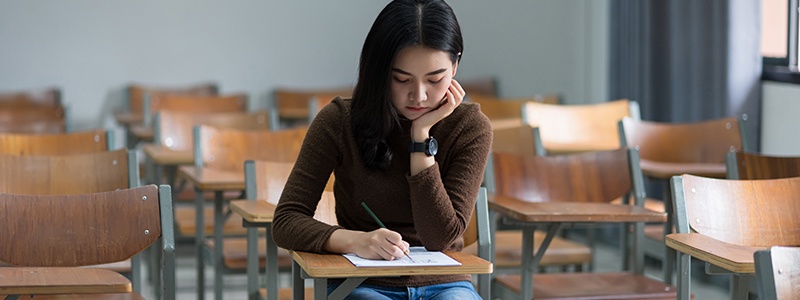Like most national nonprofits, Kids’ Chance of America is feeling the effects of the current pandemic. COVID-19 is having a significant impact on fundraising nationally and across our state organizations. To date, KCOA estimates state organizations could lose up to $750,000 collectively due to cancellations of fundraising events, compromised partner and sponsor support, and a lack of public visibility due to the elimination of conferences and other outreach activities.
Yet the need for increasing scholarship support is real. We recognize that our Kids’ Chance scholarship applicants and recipients are already part of a vulnerable population, and due to the current healthcare crisis, they may be more vulnerable than we realize
Vulnerable Populations are Becoming More Vulnerable
Kids’ Chance scholarship applicants and recipients are often more vulnerable than we realize. Many of our students are first-generation attendees who may lack the emotional, financial, and academic support from their families because these families have no first-hand knowledge of how to support them. Even something as fundamental to the college process like completing a scholarship application can be challenging when acronyms like FAFSA, SAR, and EFC abound.
Our families already face financial hardship due to a workplace injury or death. As a result, some of our students are working to provide additional funding to support their education or to help support their families – often, they’re doing both. With summer jobs now at risk, they will be forced to deal with greater financial deficits impacting both their families and their educational pursuits.
Housing and food insecurity are also prevalent, especially when students are trying to save money by foregoing housing and dining plans at school. For students trying to work and study, this can lead to inadequate housing and food options. These challenges often go unnoticed because these vulnerable students are less likely to self-identify.
Our Kids Face Uncertain Education Plans
High school seniors are graduating without the typical pomp and circumstance and now face an unknown future regarding summer and fall classes at many colleges and universities. There is confusion when it comes to financial aid and how it will impact students studying from home. While institutions of higher education make decisions on opening, many deadlines have been extended to provide more time to explore options.
But financial aid forms including FAFSA (Free Application for Federal Student Aid), CSS Financial Aid Profile, schools’ own forms, and state scholarship application forms can be daunting under normal circumstances.
Together, these forms generate a picture of a student’s current financial situation. April 2020 probably looks vastly different from a financial standpoint than April 2019 and may require a professional judgment from a financial aid officer that will allow adjustments in calculating student and/or parent contributions toward the cost of attendance.
All this uncertainty creates anxiety for both incoming and returning Kids’ Chance scholarship recipients, and most certainly impacts decisions about school. For some, it may even put their ability to attend at risk.
How You Can Help
Kids’ Chance state organizations are the ones to provide scholarships to kids in their states. Your donations will help fund those scholarships.
Here are some ways you can help:
- Support the Kids’ Chance organization in your state with a donation.
- Make a gift to the Kids’ Chance of America Emergency Scholarship Grant Fund. Note ESGFund on your check or online donation.
These challenging times will require our Kids’ Chance community to rally. We thank you for your support of our mission to provide education for students who need it most.
Kids’ Chance of America (KCOA) is a national nonprofit organization that makes educational achievement possible for children of workers who have been seriously or fatally injured on the job. By providing scholarship support, Kids’ Chance state organizations help these children realize their dreams of attending college and ease their family’s stressful financial situation. Many of the children receiving scholarship support come from homes where one parent is now the primary earner and is struggling to make ends meet.

